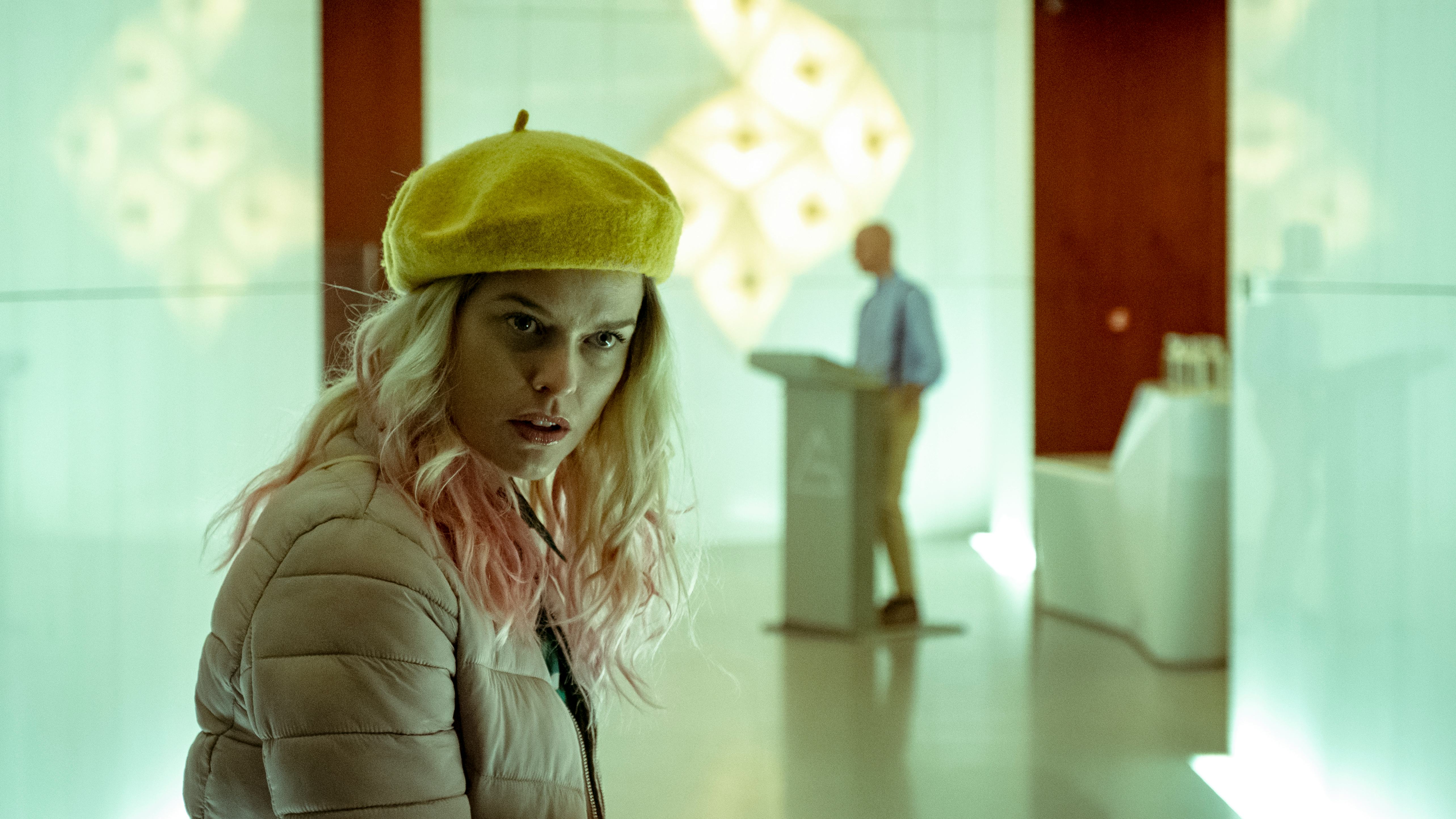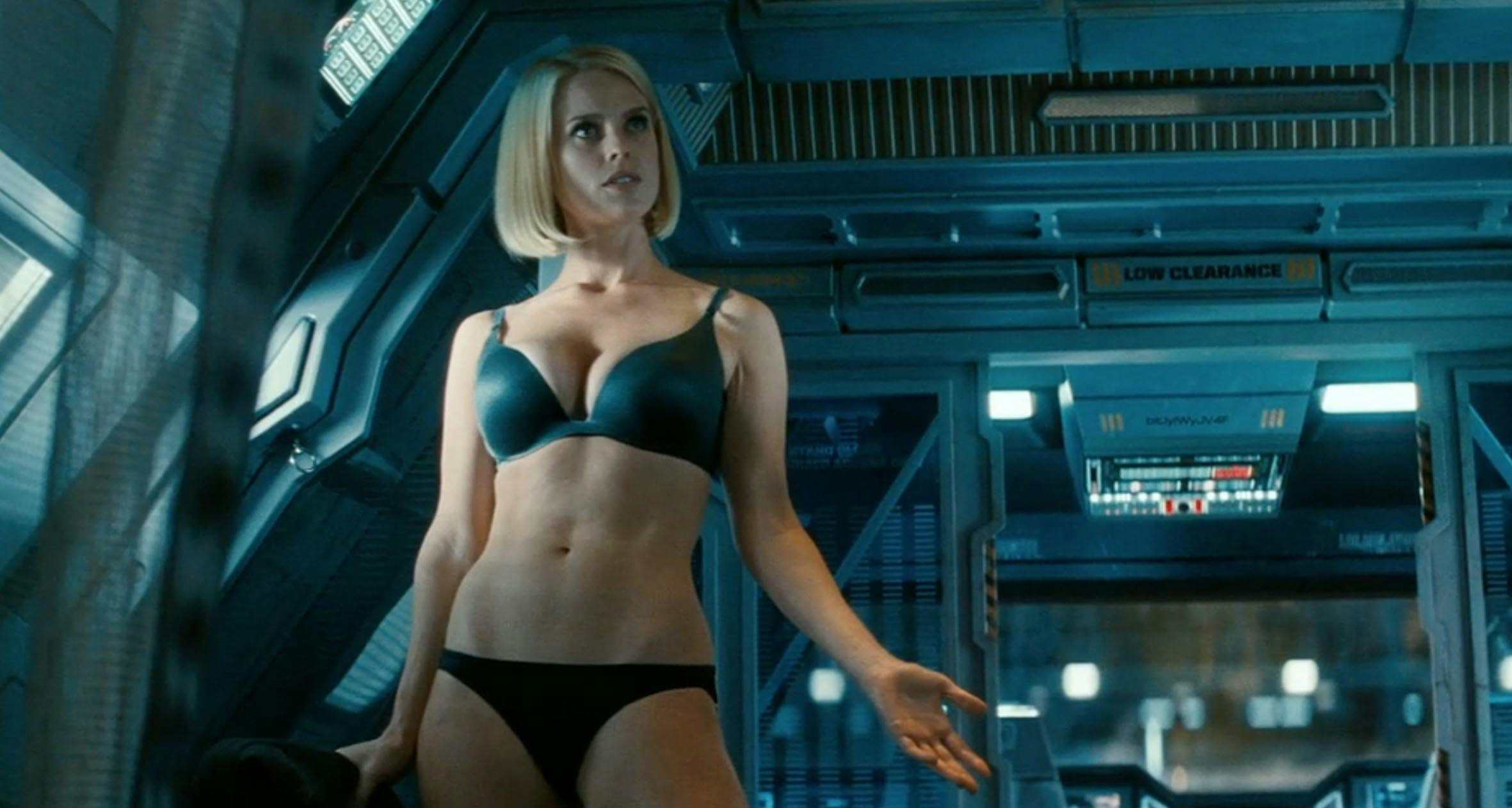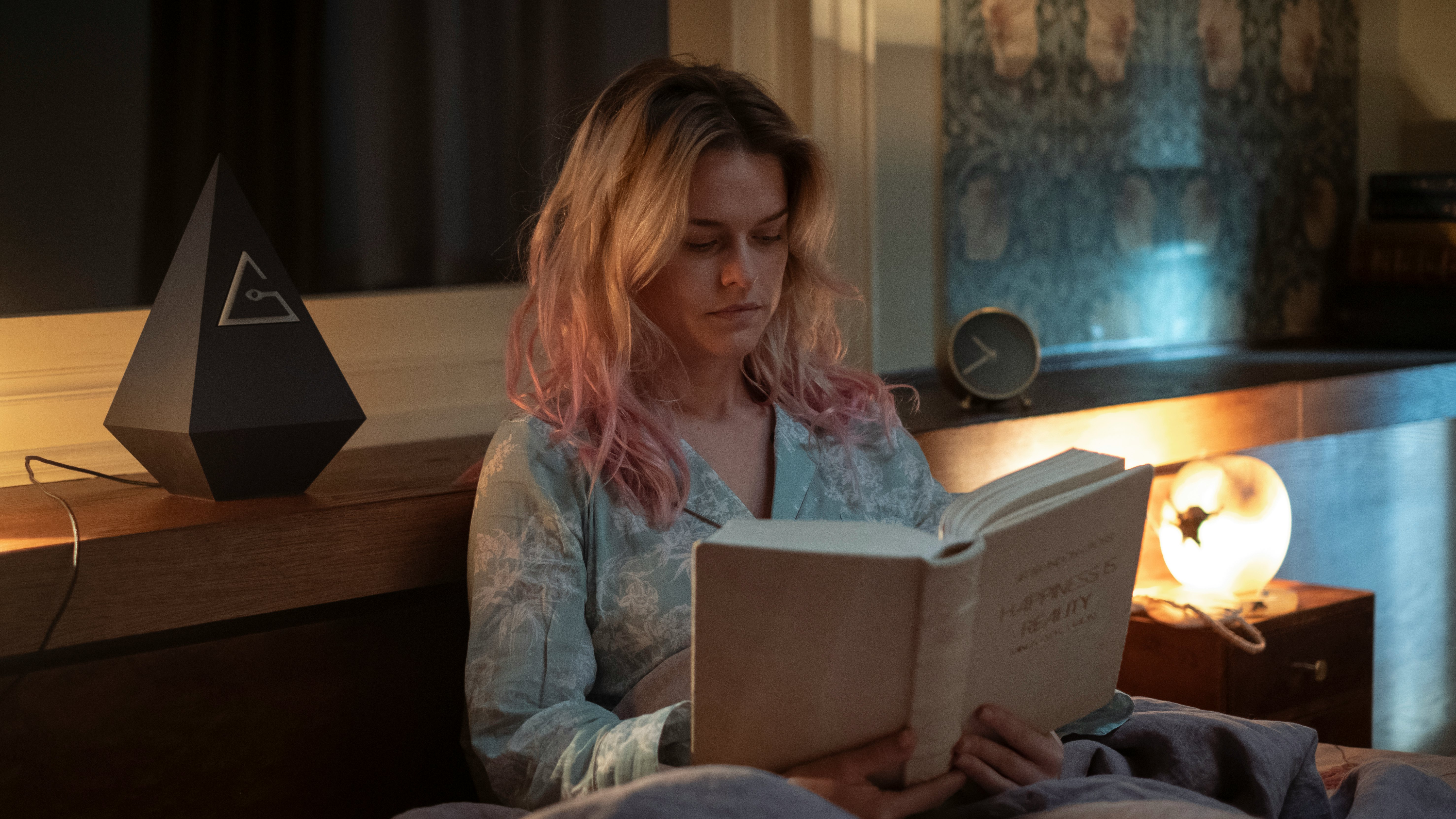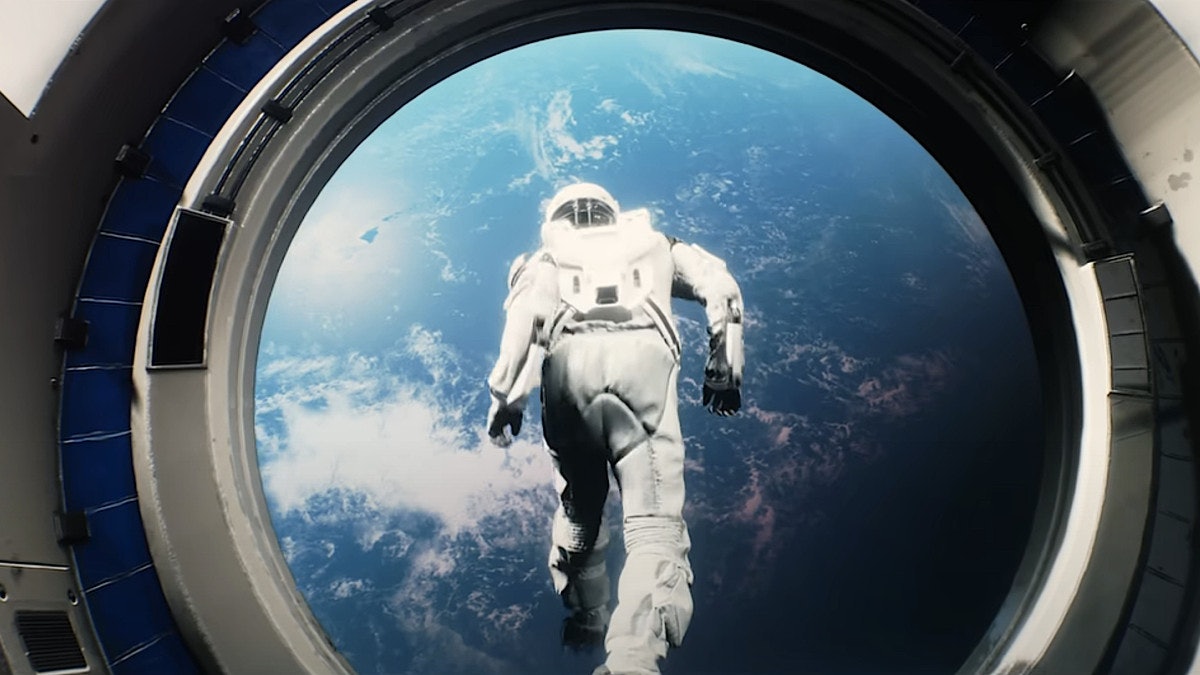
Star Trek once promised to boldly go where no man has gone before. But Alice Eve knows science fiction can go much further by foregrounding women within its strange new worlds.
“A lot of women in sci-fi are self-sufficient,” says the actress, who played one such character — Dr. Carol Marcus — in 2013’s Star Trek Into Darkness, though not without controversy. (More on that later.)
Still, more than 50 years after Star Trek first aired, “science fiction is not necessarily the domain of women in terms of creation” off-screen, Eve says. For all the Ellen Ripleys and Sarah Connors on screen, this lack of female perspective behind the camera can hold the genre back.
An English actress who’s also known for her roles in Men In Black 3 and on Marvel’s Iron Fist series, Eve is experienced at navigating this tension. Her latest film — Warning, from Polish director Agata Alexander — marks the first time Eve has made a sci-fi thriller with a female filmmaker.
“I wanted to support a woman tackling traditionally male subject matter,” Eve tells Inverse, speaking in support of the film (out now on digital platforms). “I loved her audacity. She had this grand vision she was determined to execute on a small budget. And she did.”
Broadly, Eve is a sci-fi fan. And playing characters like Star Trek’s Carol Marcus is part of the appeal. “Sci-fi is cool because it shows powerful women,” Eve tells Inverse. “They're not usually married with kids. They’re working for their passion.”
In 2013, Eve found herself discussing the optics of female representation in sci-fi in a more negative sense. When Star Trek Into Darkness hit theaters, some audiences objected to a scene in which Marcus strips to her underwear and is glimpsed by a chastened Captain Kirk (Chris Pine).

A throwaway shot, it served little narrative purpose in the film’s theatrical cut. Online, the backlash was swift to what some saw as a gratuitous instance of a female character being unfairly sexualized. (Though, of course, there was also a backlash to this backlash.) Eventually, producer Damon Lindelof apologized, and director J.J. Abrams conceded that he understood the criticism. Eve has spoken only sparingly about the incident but, looking back on the scene, remembers being taken aback by the controversy.
“It was something I voluntarily worked with a trainer to be fit for, was very much prepared for, and very much enjoyed [doing] — filming, executing, promoting,” recalls Eve, who says she was actively involved in discussing all her character’s scenes. “The feeling I shouldn’t have done it, or that it was exploitation, was confusing to me.”
Eventually, Eve shrugged it off: “There are many things in the world that are confusing. I put it down to one of those anomalies. I’m proud of that scene, and all the work I did.”
The experience was still eye-opening for the actress, leading her to seek out projects, like Warning, that would avoid the male gaze dominant in most Hollywood sci-fi. Told over a series of disconnected vignettes set during a freak storm, Warning stars Eve as Claire, a lonely woman whose daily life is dependent on a pyramid-shaped smart home device called “God 2.0.” (In real life, Eve avoids such smart devices.)
Living in a near-future where technology is seen as a substitute for human contact, Claire’s isolation is heightened by everyday interactions that are hostile, cold, and unfriendly. “People have their main relationship with their device and they lose the ability to connect, to feel each other and empathize,” Eve says. “To me, the ‘warning’ is to remain empathetic, to remain in tune” with humanity, she adds.
Eve found shooting Warning to be isolating, as her main scene partner is an inanimate object (voiced by actor James D’Arcy). “The pleasure of the movie was the experiment of not having another actor,” she says. “It’s different, but it was much more lonely.”

Claire’s backstory isn’t deeply explored in Warning, but Eve and Alexander collaborated on the idea that her character’s vulnerability stemmed from heartbreak. “When we suffer heartbreak, we retreat,” she says. “And when we retreat, we don’t like to connect with people. And then she becomes reliant in that period of recovery on this device.”
Far from helping Claire, “the device hooks into her,” making Warning a cautionary tale, says Eve. Claire turns to God 2.0 in an almost fanatical way, with Warning taking an unsubtle stance against organized religion and its power to prey on people.
“She’s lured into this belief she'll be a better person,” says Eve. “Organized religion seduces people by telling them life will be better. It's old capitalism: You won’t be lonely and sad if you don’t commit sin. Obviously, it’s important to be a good person, but it’s not going to make your life better to live.”

Eve is still learning all it can mean to be a woman in science fiction. She will soon star in The Power, an Amazon series based on Naomi Alderman’s 2016 novel in which women possess electric superpowers. Alderman is writing the adaptation of her own book, with Handmaid’s Tale director Reed Morano at the helm of at least one episode and an all-female writer’s room involved in the project.
Eve says the 10-episode series’ main concept is teased by its title: who gets to wield power, and what will they decide to do with it?
“The Power is an idea of a future where women have power and are more physically capable than men,” she explains. In the series, Eve stars opposite Leslie Mann, Auliʻi Cravalho, Daniela Vega, Tim Robbins, Rob Delaney, and John Leguizamo.
“My character is something of a choir [for] understanding the story,” she says. “I think it’s a really important story to tell, to show us throw[ing] the world on its axis and show how much of our [society’s] power dynamic relies on physical strength.”
In the years since Alice Eve starred in Star Trek, she’s paid closer attention to how women have been represented in the final frontier and beyond.
“There’s a different generation coming up, and I hope they’re feeling empowered,” says Eve, praising the long-overdue reckoning that the #MeToo movement has played one part in triggering. “I believe we're all having a human experience, and that’s a painful thing to have.”
Warning is available on Digital, Blu-ray, and DVD on October 22.







